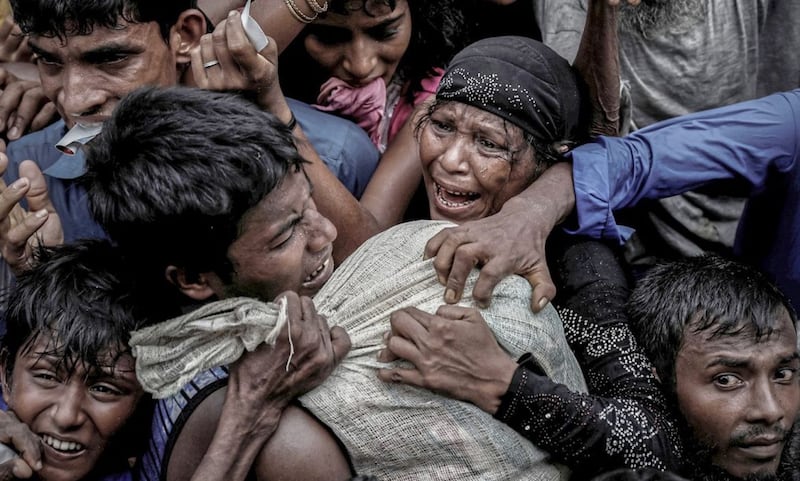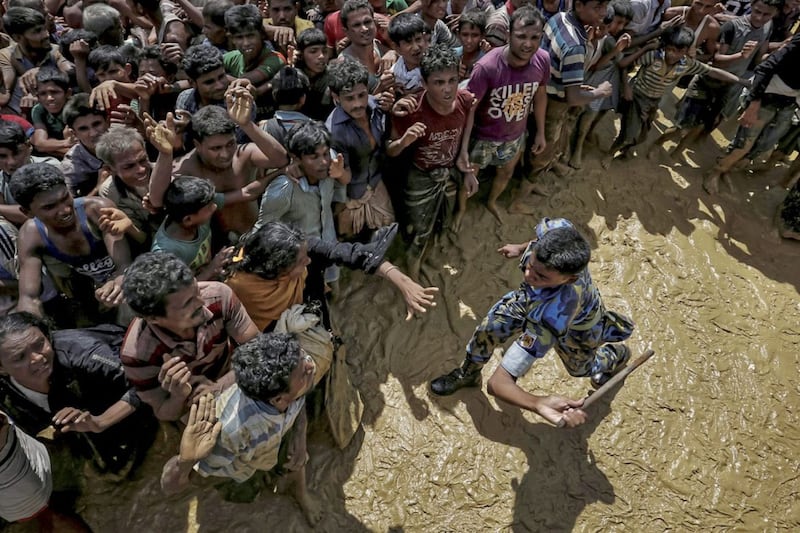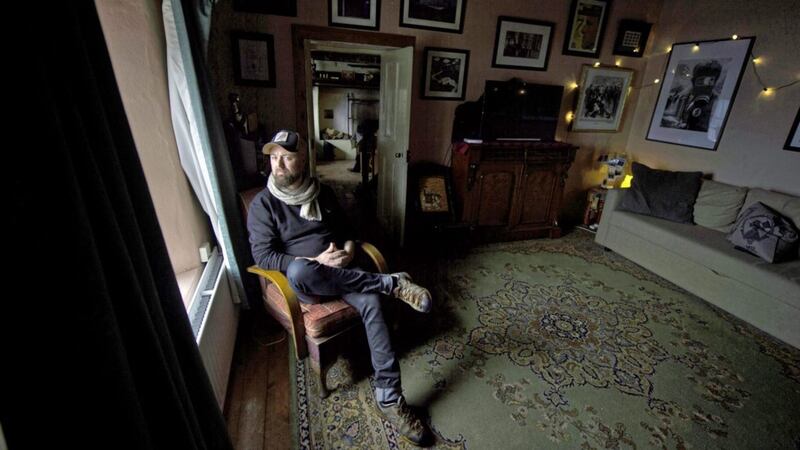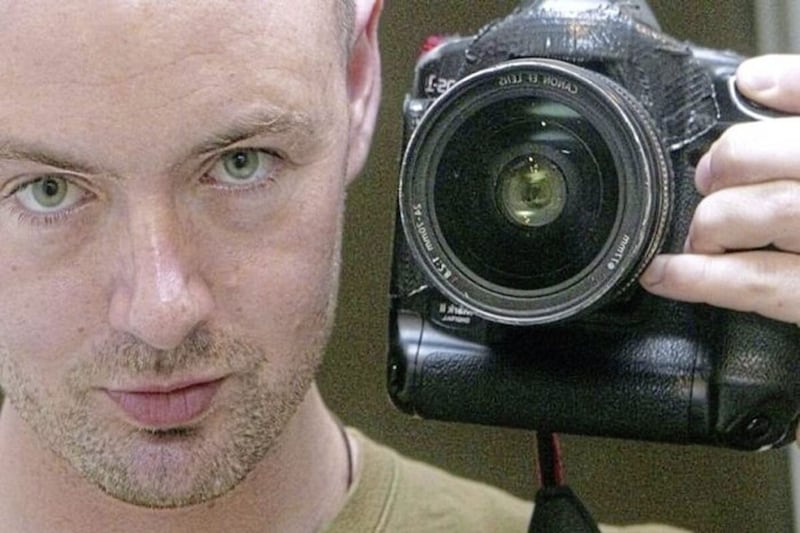"I'M STILL a photographer, I just don't have a camera at the minute." That's how Pulitzer Prize-winning Co Antrim photojournalist Cathal McNaughton sums up his current situation, which has seen him stepping back from capturing newsworthy images in far-flung lands to spend time at home in the north.
Just a couple of years ago, McNaughton (41) had reached the peak of his career – which stretches all the way back to the late 1990s when he was a trainee photographer at The Irish News – while working as chief photographer in India for the prestigious Reuters news agency.
The Cushendall man and his colleagues at Reuters won a Pulitzer in 2018 for their work in Cox's Bazar in Bangladesh the previous year, where they documented the harrowing plight of the hundreds of thousands of Rohingya refugees flooding into the country while fleeing a brutal genocide conducted by the Myanmar army.
However, having just collected the coveted journalistic award in New York, McNaughton was then denied re-entry to India – he later learned it was because of a previous assignment highlighting the situation in the disputed Kashmir region – and forced to leave his old life behind.
Around this time, both the photographer's parents were dealing with serious health problems, so when Reuters offered to redeploy McNaughton to Manila, he instead chose to return home to the north to be near his family.
"Initially, it wasn't something I planned to do," the snapper reveals of the sudden upset which led to his ongoing 'career break', which currently finds him living in splendid isolation (or rather 'splendid self-isolation', given the coronavirus restrictions) in Waterfoot, where he shares a rural stone cottage with faithful rescue dog, Murphy.
"It was quite a traumatic thing to happen and it happened in a period of my life when things were definitely on the ascendency and my career was going very much to plan. But then my mother and my father's illnesses happened at the same time, which you might say 'concentrated my thoughts'.
"I was forced to look at the situation and step off the rollercoaster, basically. Once I stepped off it, I realised what was important and that it was time to take stock of family and things. I realised that maybe it was time to take a break and head home and re-evaluate things.
"In this profession, you have to make a lot of sacrifices. You have to become quite selfish if you want to achieve certain goals because you have to put yourself first, your career first – and of course that comes at the cost of relationships with family members and loved ones."
Of course, in order to take such a difficult path, you have to really believe in what you are doing: there is no doubt that the powerful images the Co Antrim man shot of the human suffering he witnessed in Bangladesh made a worldwide impact. And, while he may not be active in the field right now, McNaughton still remains passionate about the role of the press in highlighting injustice.
"Whenever it comes to something like covering natural disasters, political turmoil or civil unrest I think it's a very necessary job," he tells me of a career path which has taken him from covering events in the north for The Irish News, Belfast Telegraph and Sunday Life to working for the Press Association, the Daily Telegraph and then Reuters, for which he worked in Ireland and internationally.
"We're seeing it now very much so [during the coronavirus pandemic]. Where's everyone getting their information from? It just reinforces how important the press is even though we're vilified all the time."
Until recently, McNaughton's evocative award-winning images of the genocide's aftermath in Cox's Bazar were the subject of a photo exhibition simply titled Rohingya, which had just opened at Belfast Exposed gallery when the current Covid-19 crisis forced its closure.

"I wanted to remind people of what had happened and what is happening as well, " he says of the exhibition, which coincided with him beginning to teach masterclasses for camera addicts of all abilities and giving talks on some of his harrowing news photography experiences, including what it was like to cover the Rohingya genocide.
"There's a lot of talk of us becoming desensitised [to the news]," offers McNaughton.
"You click a button and move on to the next thing and forget about it. But whenever you see these pictures in an exhibition, there's no clicking on a button: you stand and you stare and you look at these people – and they're staring back.
"You're in the comfort on an art gallery and they are in their own absolute hell. You are staring at hem in the eyes and you can get some sort of sense of what it is that they are feeling. Hopefully, that will reboot people's brains into maybe thinking in a slightly more empathetic way to their fellow human beings.
"Maybe that sounds a bit crazy, but even if it helps make you a bit friendlier to somebody, then that's a good thing. And if it makes you want to help these people, that's a good thing as well. That's the reason I shot the pictures to start with.
"I put my heart and soul into the story and shared that with the rest of the world and it has affected me in many profound ways."

As mentioned, McNaughton has recently been helping others to improve their photocraft, something he first learned as a teenager under the award-winning weather eyes of former Irish News photo editor and photojournalist Brendan Murphy, whom his father helped shoot photos around the Glens for the book A Day In The Life of Ireland.
Work experience with the Irish News photo desk soon lead to shooting actual photos for the paper, which meant covering events at the tail end of the Troubles: indeed, one of the young McNaughton's first big assignments was documenting the painful aftermath of the Omagh bombing in 1998.
"If it wasn't for Brendan, I doubt that I would have been a photographer," McNaughton tells me, recalling how the veteran snapper's invitation to "give me a shout" if he ever took an interest in photography changed his life at 16.
"Through his own unique form of mentoring, he sort of moulded me and showed me the right path and the right way to do things, how to approach a story. Brendan is a photographer, but he's also a great writer as well. He is a photojournalist and I picked that up from him.
"He gave me some great advice. He gave me the basic foundations for my career and photography itself."
With a chuckle, McNaughton adds: "He also told me that, if it hadn't been for him, I would still be picking spuds in the Glens. The funny thing is, I'm probably not that far away from that right now."
As regards his future, McNaughton says he's mainly focused on the present right now.
"At the minute, what I'm doing now is where I want to be. Because of the coronavirus, I've started doing online tuition via Skype – and that's been really enjoyable, actually," McNaughton enthuses.
"It's helping me through this whole situation we're in. It's nice speaking to people from other countries and giving them a bit of respite as well. I'm finding that a lot of people are using it as a tool just to chat, really, and to tell me about what's happening where they are. So that's been really interesting."
Clearly, he'll not have to resort to picking spuds just yet.
:: Visit Cathal online at Cathal-McNaughton.com






